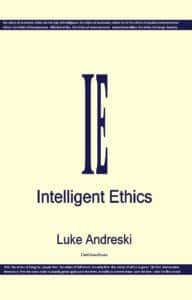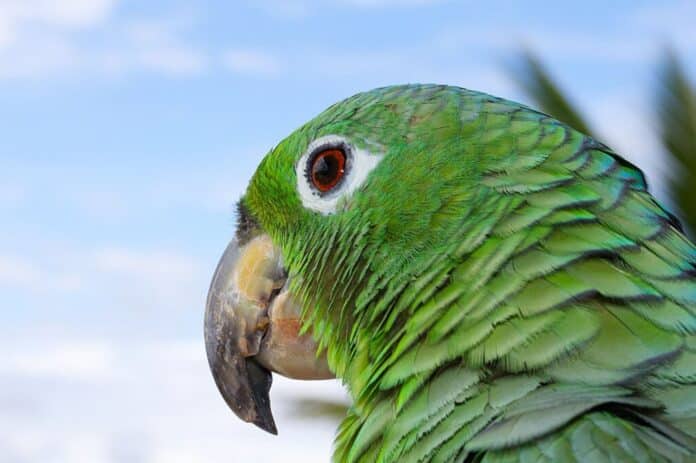Morality is the second greatest invention humanity ever made. I’m going to explain why in a series of articles for Dorset Eye.
It’s an invention we all use every day, even if we think we don’t. We judge people. We praise them. We say, “That was the wrong thing to do,” or “Cruella Braverman? What an evil bitch.”
We tell each other it’s wrong for wealthy post-industrial countries to exploit child labour in South America, Africa or the Far East. We denounce corrupt politicians. Almost all of us think corruption is wrong – and we would think it was wrong even if, indirectly, we or our country were benefitting from it.
Almost all of us think slavery is wrong, no matter where, no matter when.
Almost all of us (psychopaths aside) think the killing of innocents who don’t want to die is wrong.
We judge things to be good or bad, right or wrong, every day; and most of us, every day, try to do the right thing, try not to be greedy or selfish or cruel.
Kindness
Most of us, every day, attempt to demonstrate integrity. We try to be moral. We want to be decent people, doing our best and, hopefully, being respected for that.
There’s a wonderful book out at the moment by Rutger Bregman called Humankind. It suggests that we are all, in general, much nicer than our media or politicians tell us we are. The book is full of evidence to back this up. Bregman finds a real Lord of the Flies shipwreck story where it turns out that the children involved looked after each other. The cruelty and meanness described in the novel by William Golding doesn’t happen when it comes to real life.
Bregman details some of the bigger disasters of our times where politicians and the media predicted people would turn on each other in selfish dog-eat-dog chaos… but where in fact the survivors worked with extraordinary courage and determination to help each other.
If you are observant you will see this quality of decency happening all the time in everyday life: people being moral; people being kind; people looking after or helping other people.
Perpetuating the lie
Our politicians won’t tell you this fundamental truth about human nature.
Why not?
Maybe it’s because if they encourage us to mistrust and fight each other it helps them maintain the hierarchy of power of which they are a part.
The media don’t tell you about our natural human kindness and morality?
Why not?
Perhaps it’s because, by scaring us, by telling us all the bad stuff, they can sell more content and secure their financial future.
Or perhaps it is because they have a political axe to grind on behalf of their billionaire owners, one which relies on us being suspicious and fearful of other people – other, ordinary people, who, just like us, are struggling to get by and live lives that don’t fill them with disappointment or despair.
Happiness
We all want happiness. We all want fulfilment. And we all want to survive.
But at the moment none of this is guaranteed… In fact, looking at the world today, it doesn’t even look very likely.
Why?
Because the people who run our world are immoral. They have created for themselves a morality-free zone where the rich get richer, the world gets wrecked, and the rest of us pay the price. We live in a world where amoral corporations, hedge funds and the super-rich have taken up the reins of power – and there’s no sign of them letting go any time soon.
And that’s why it’s important to talk about morality – because it’s crucial to know what we’re fighting for, and what we’re fighting against.
Being moral
In this series I take a look at:
???? What morality is
???? What morality is for
???? Moral authority
???? What morality says
And
???? Why it makes sense to be moral
Morality is an amazing thing. It is one of our greatest inventions. And it’s not what most people think it is.
I hope you’ll join me in finding out why.
In Dorset Eye tomorrow I ask the question, “What is morality?”… and I come up with answers capable of liberating and empowering us all.
Luke Andreski
Luke Andreski is a founding member of the @EthicalRenewal and Ethical Intelligence collectives. His books include Intelligent Ethics (2019), Ethical Intelligence (2019), Short Conversations: During The Plague (2020) and Short Conversations: During the Storm (2021).

Intelligent Ethics is available here.
You can connect with Luke on LinkedIn, https://uk.linkedin.com/in/luke-andreski-ethics, or via @EthicalRenewal on Twitter https://twitter.com/EthicalRenewal
With thanks to Graham Wise from Brisbane, Australia for the beautiful parrot image, CC BY 2.0 <https://creativecommons.org/licenses/by/2.0>, via Wikimedia Commons
Join us in helping to bring reality and decency back by SUBSCRIBING to our Youtube channel: https://www.youtube.com/channel/UCQ1Ll1ylCg8U19AhNl-NoTg and SUPPORTING US where you can: Award Winning Independent Citizen Media Needs Your Help. PLEASE SUPPORT US FOR JUST £2 A MONTH https://dorseteye.com/donate/








What is morality? Are there features that must be present in any moral code for it to be considered ‘morality’? What does the way in which we talk about morality and make moral judgements tell us about its nature? Find the next article in this series here: https://dorseteye.com/what-morality-is/
What is morality for? Does it have a function, a purpose?
It it an accidental arrangement of words or is it a useful tool.
Is it even, as has often seemed the case, a tool for manipulation and control?
I take a look in the third article in this series:
https://dorseteye.com/what-morality-is-for/